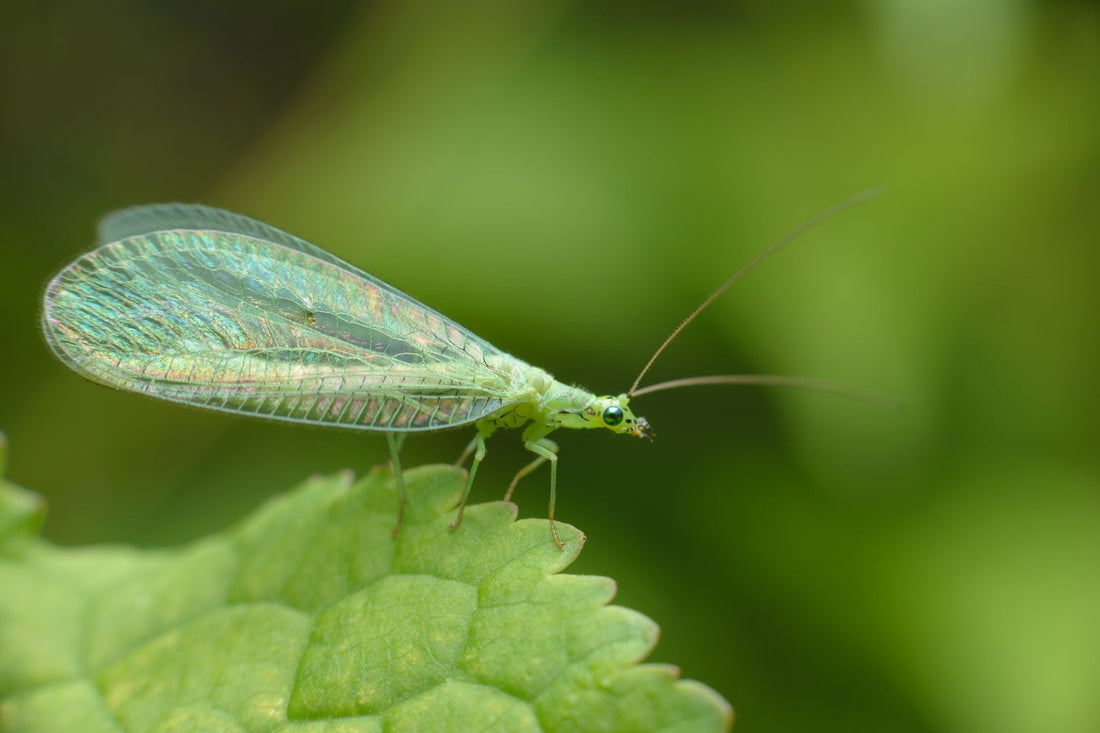The Unexpected Garden Heroes: Discover Beneficial Bugs
Welcome to the magical world of beneficial bugs—a place where the tiny warriors of the insect kingdom work tirelessly to make your garden flourish. Today, we're diving into the secret lives of these unsung heroes and discovering how to roll out the green carpet for them in Georgina, on the beautiful shores of Lake Simcoe. So, grab your magnifying glass and let’s go bug hunting!
What Are Beneficial Bugs?
Beneficial bugs are the good guys in the insect world. They’re the superheroes that help keep your garden's ecosystem in check. Think of them as the Avengers of the plant world, swooping in to gobble up pests, pollinate plants, and even enrich the soil.

Why Do You Need Beneficial Bugs?
Imagine a garden without beneficial bugs. It’s like a party without music—dull and prone to chaos. These critters are nature’s pest control, saving you from a pesticide-laden nightmare. They help maintain a balanced ecosystem by preying on harmful insects, which means fewer chewed-up leaves and more thriving plants.
Who Are These Garden Heroes?
Let’s meet some of the key players:
- Ladybugs: The polka-dotted warriors who devour aphids like it's an all-you-can-eat buffet.
- Bees and Butterflies: The glamorous pollinators making sure your flowers and veggies are abundant.
- Lacewings: These delicate-looking insects have a voracious appetite for aphids, caterpillars, and other garden pests.
- Ground Beetles: The night shift workers that patrol the soil, hunting down slugs, snails, and other ground-dwelling pests.
- Gall Wasps: These tiny, often overlooked insects are parasitic wasps that lay their eggs in the larvae of pests, providing natural pest control.
- Hoverflies: Often mistaken for bees, these insects are fantastic pollinators. Their larvae also snack on aphids, making them a double threat.
- Parasitic Wasps: These tiny wasps lay their eggs inside pest insects, which may sound like the plot of a horror movie, but it’s great news for your garden.

What Plants Attract Beneficial Bugs?
To attract these VIP guests, you need to set the right ambiance. Here’s what to plant:
- Yarrow: A favourite of ladybugs and lacewings.
- Lavender: Not only does it smell divine, but it's also a magnet for bees.
- Marigolds & Calendula: These bright beauties repel pests and attract pollinators.
- Dill, Coriander and Fennel: Great for attracting lacewings and parasitic wasps.
- Sunflowers: They attract a variety of beneficial insects and provide seeds for birds.
- Native Plants: Native plants are like home cooking for beneficial bugs. In our Keswick area, consider planting wild bergamot, coneflower, and milkweed.
DIY Insect Hotel Ideas
Why not give these bugs a cozy place to stay? Building an insect hotel is easier than you think. Here's a simple DIY idea:
- Materials: Wooden box, bamboo canes, straw, dried leaves, pine cones, and twigs.
- Construction: Stack the materials inside the box, creating little compartments. Bamboo canes are perfect for solitary bees, while straw and leaves make great nesting material for ladybugs and lacewings.
- Placement: Hang your insect hotel in a sunny, sheltered spot. The south side of a garden shed or fence is ideal.

Beneficial Bug-Friendly Garden Design
Creating a welcoming environment for beneficial bugs involves a bit of thoughtful planning. Here are some design tips for Canadian growing zone 5:
- Diverse Planting: Mix and match flowers, herbs, and vegetables. A diverse garden attracts a wider range of beneficial insects.
- Plant Layers: Include ground covers, mid-height plants, and taller varieties. This layered approach provides a range of habitats.
- Flower Power: Aim for continuous blooms throughout the growing season. This ensures a steady supply of nectar and pollen.
- Avoid Pesticides: Ditch the chemicals! Pesticides kill beneficial bugs along with pests. Stick to natural pest control methods.
- Provide Water: A shallow dish filled with water and pebbles gives thirsty insects a safe place to drink.
- Leave Some Mess: A tidy garden is overrated. Leave a few leaf piles or logs to provide shelter for ground beetles and other insects.
- Compost and Mulch: A layer of mulch or compost not only improves soil health but also provides a habitat for ground beetles and other soil dwellers.
The Importance of Beneficial Insects & Natural Pest Control
Beneficial insects are crucial for a healthy garden ecosystem. They naturally control pest populations, reducing the need for chemical interventions. Take the gall wasp, for example. These tiny wasps lay their eggs in pest larvae, effectively stopping the next generation of pests from wreaking havoc on your garden.
So there you have it, by attracting and supporting beneficial bugs, you're not only helping your garden thrive but also contributing to a healthier environment. So, next time you see a ladybug or a bee buzzing around, give them a silent nod of appreciation—they're the true heroes of the garden!
Happy gardening!
Shannon, the Garden Girl
Shannon, the Garden Girl, shows you the different stages of ladybugs, the important role they play in your yard & garden, and how to identify them at different stages.




